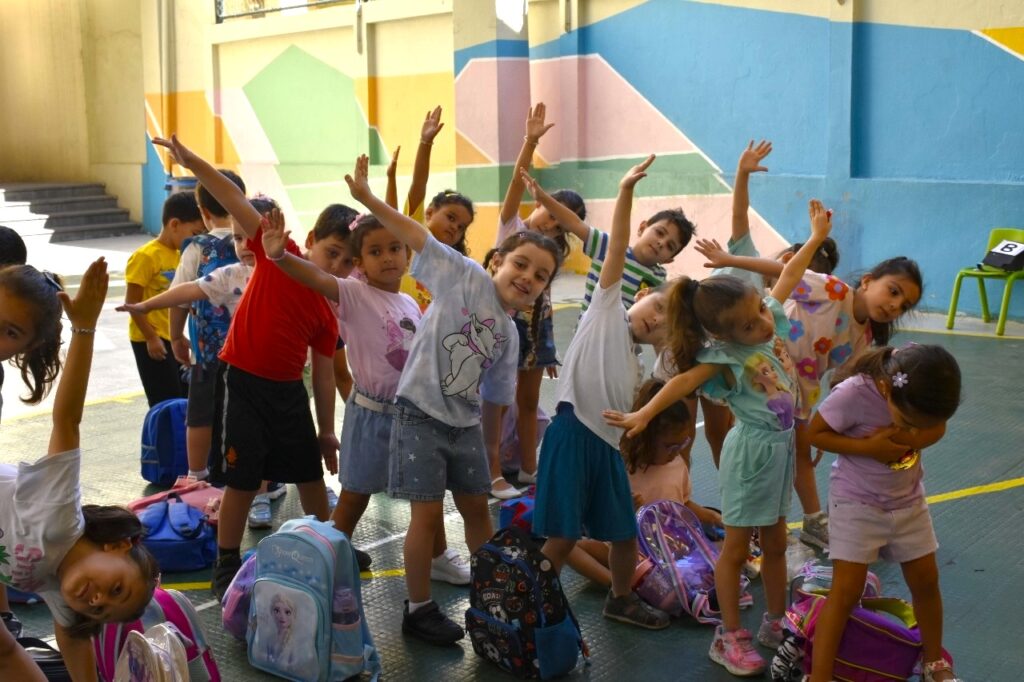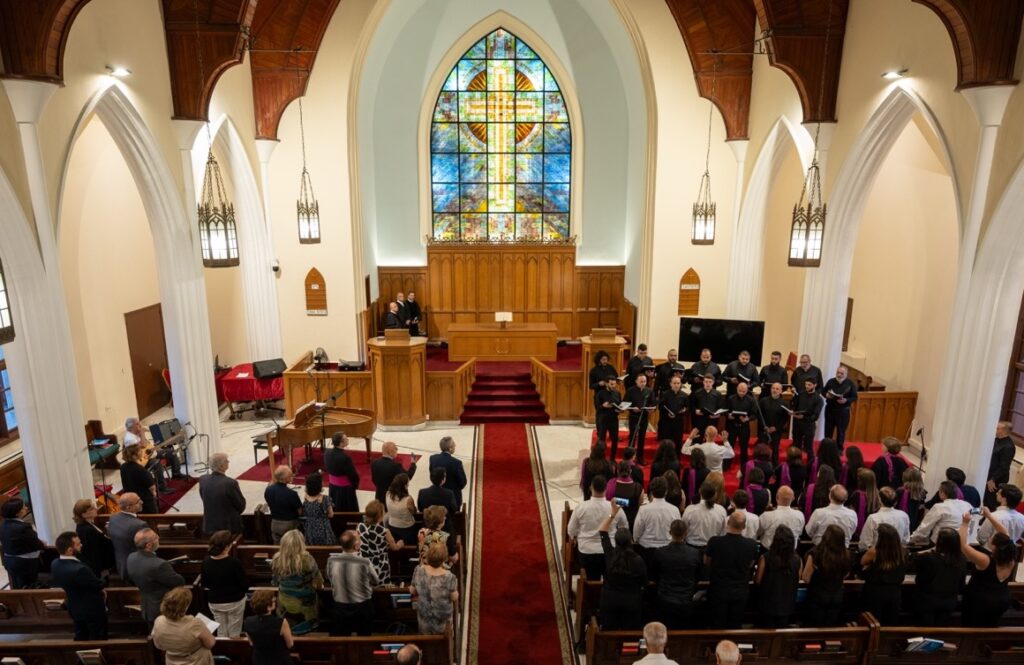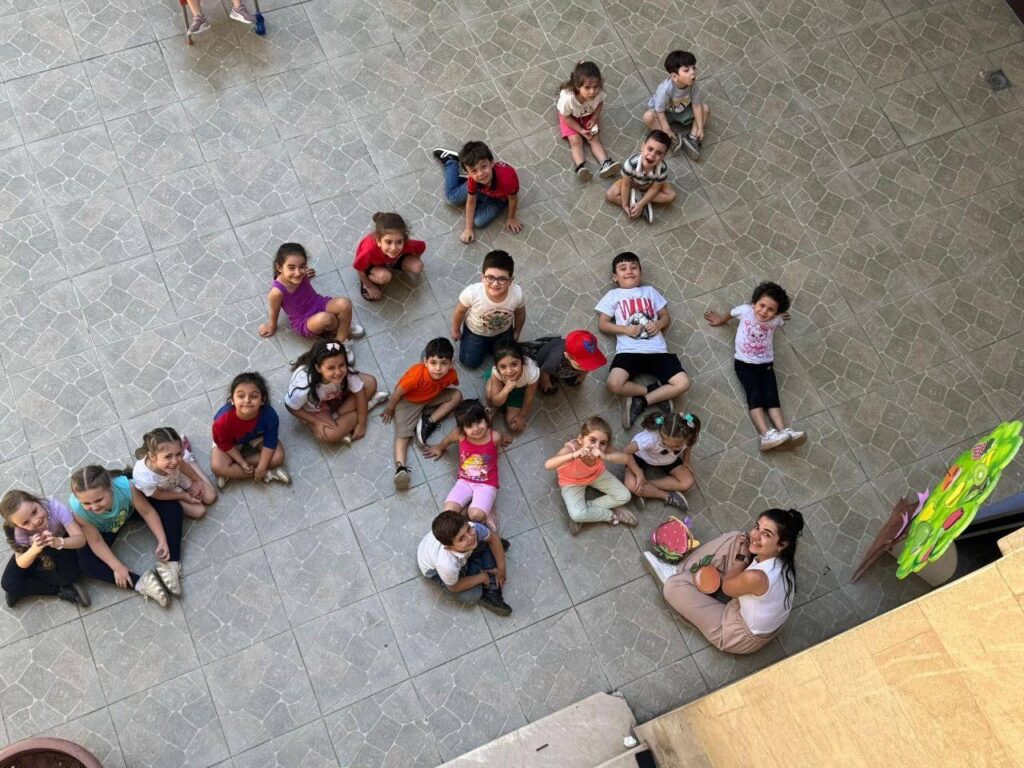The Flying Trapeze

Suspended between regional and world powers, Lebanon is flying from swing to swing in today’s reality in the Middle East. Far below, those who are still interested crane their necks upward to see the movement, back and forth, and wonder if Lebanon will miss grabbing the next rung, or whether it will fall into the safety net, or whether the safety net is torn, or whether there even is a safety net. It is a surreal reality the country and the entire region is enduring, with terms like “self-defense” being used as a cudgel to enforce dominance, and political-financial “accords” used to cow countries into acquiescence with the main aggressor in the Middle East, where genocidal plans for erasure of a people are framed alongside attempts at heroism to protect minorities in other countries.
We have become inured to the inhumanity of everyday life here: the drone strikes on “terrorists” anywhere in Lebanon; the impunity enjoyed by one of the most brutal regimes in modern times; the ordinary racism permeating a country that despises efforts at bridge-building. No longer is it newsworthy to report the dozens of people deliberately killed each day while lining up for food in Gaza. Complementing this surreal existence, even farther in the murky distance, we watch with dread the adventurism of Armenia’s officialdom, cozying up to its genocidal neighbors, cheerfully touring European capitals for photo ops and empty promises, and endeavoring to spread a blanket of amnesia over its territorial losses while berating the Armenian Diaspora’s persistent calls for justice.
Meanwhile, away from the trapeze spotlights are those who persistently and consistently serve others. This is the Lebanon we focus upon, on behalf of the churches of the Christian Church (Disciples of Christ) and the United Church of Christ. As the year draws to a close for the schools in Syria and Lebanon of the Union of the Armenian Evangelical Churches in the Near East, the high school graduates prepare not only for their graduation ceremonies, but for the governmental exams that take place immediately following. With this school year’s on-again, off-again wars, there was serious doubt about a possible delay of the exams. Still, the schools continued to help the students avoid distraction and concentrate on what was in their power to do, namely, to study. (Only schools in Syria held delayed exams.) Similarly, Haigazian University not only completed its academic year, but also held special events in Lebanon, Armenia and elsewhere, commemorating its 70th anniversary with a special exhibit (click to view) in whose preparation Maria played a pivotal role.

These “wars and rumors of wars” also affected plans for the Union’s General Assembly, whose keynote speaker was to come from Tehran, and delegates from across the region. Instead, it followed a very abbreviated schedule, with delegates joining electronically. Nonetheless, the opening worship service was held in Beirut, and ecumenical choirs joined in an observance of the 1700th anniversary of the Nicene Creed: a Maronite Catholic choir sang the creed in Arabic, an Armenian Apostolic (Orthodox) choir sang it in Classical Armenian, while Nishan presented other anthems as he conducted the Union’s “Armiss” choir (click to watch).
Despite the wildfires and safety concerns in Syria, and the economic and societal instability in Lebanon, Vacation Bible Schools in Armenian Evangelical churches in both countries brought in hundreds of children to ten different locations to experience four to six weeks of joyful play and meaningful lessons, drawing closer to Christ and his church.

The Near East School of Theology, where young scholars from Armenia and the Middle East receive their training, graduated two students from the Union this year: one was received as a licensed preacher at the Union’s General Assembly, and the other went to serve in Aleppo. As well, a graduate from last year wrote a complete Vacation Bible School curriculum (in Armenian) to be used in the Union’s churches. These blessings are the result of God multiplying the faith that is being tested under these challenging circumstances.
There is so much more caring and connection that we witness and in which we participate, that the precariousness of the flying trapeze act remains above our heads, ever-present, but not our main concern. Christ, whose eye is on the world as well as his beloved, is teaching us to immerse ourselves in acts of service, comforted by his presence beside us.
Rev. Nishan & Maria Bakalian
16 July 2025 – Beirut
